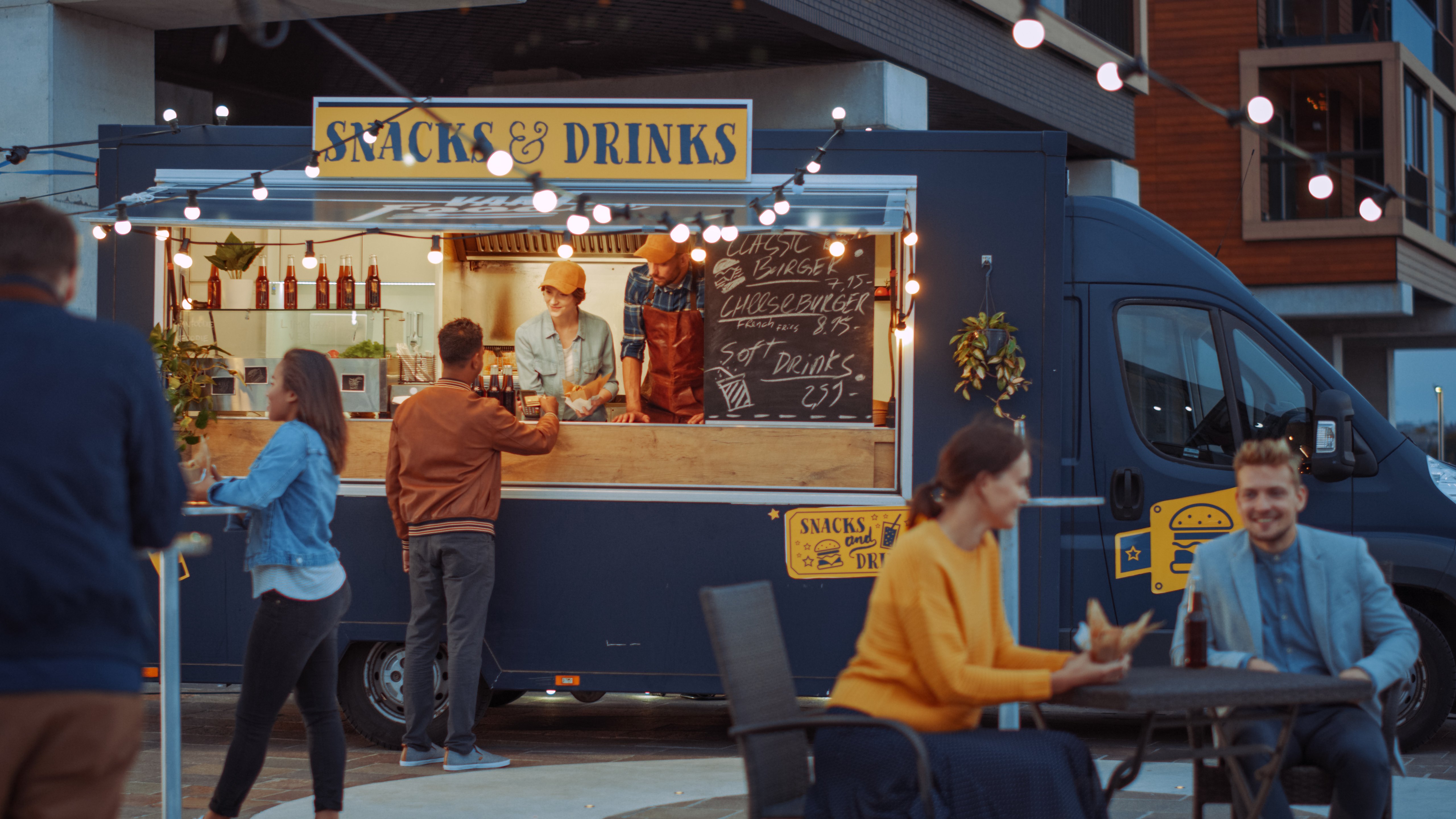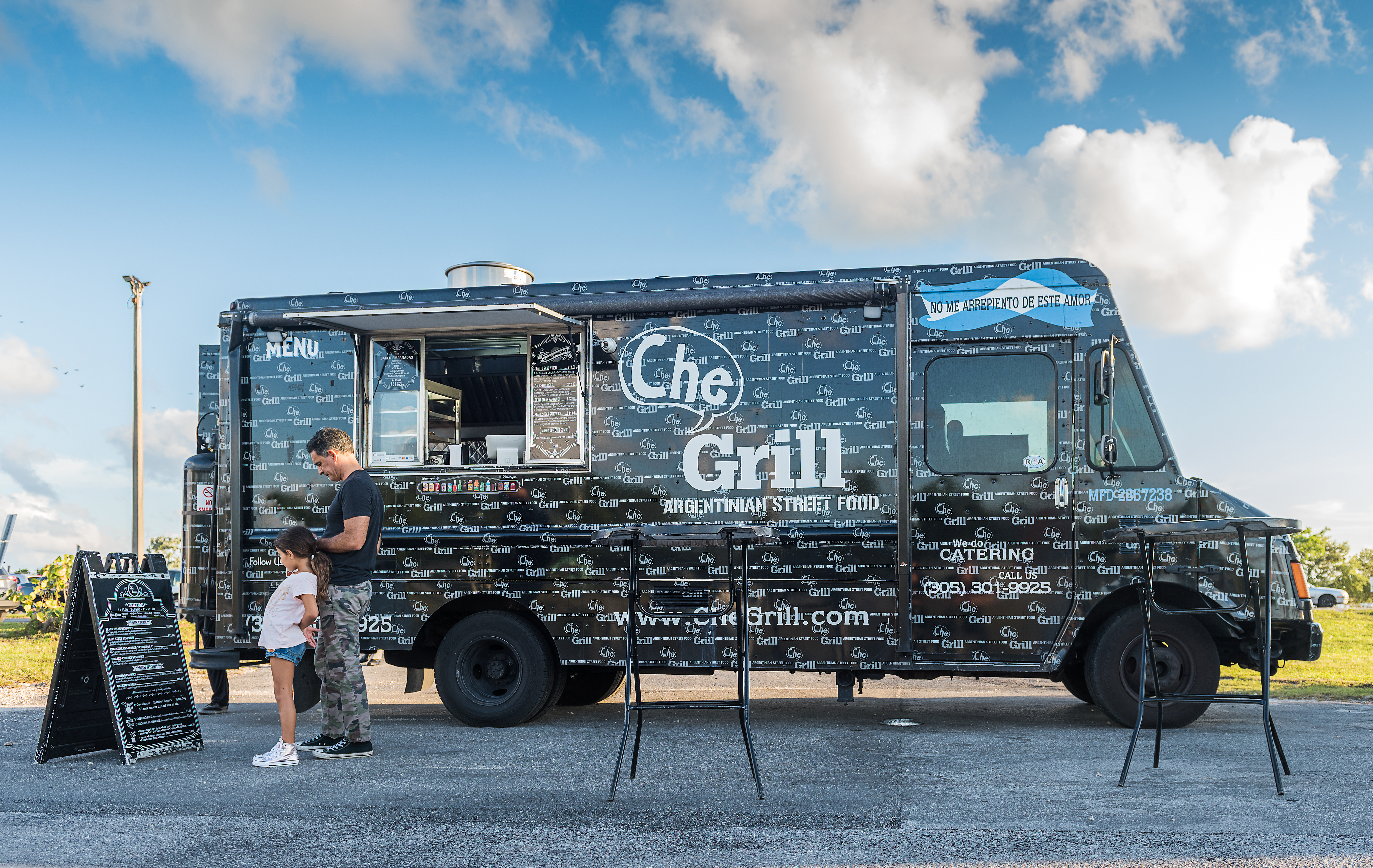Food Truck Vs Restaurant: The Ultimate Guide to Choosing Your Business Model
If you're considering starting a food business, you may be wondering whether to go the restaurant or food truck route. Both options have their advantages and challenges, and the decision ultimately depends on what type of customer base you want to cater to, what level of investment you're comfortable with, and how mobile you want your business to be. In this guide, we'll explore the pros and cons of each option to help you make an informed decision.
The Benefits of a Food Truck vs a Restaurant
When starting a food business, there are many benefits to choosing a food truck over a traditional restaurant. First and foremost, food trucks are mobile, which means you can take your business anywhere - from festivals and fairs to office parks and street corners. This gives you the flexibility to target a wider range of customers in various locations. Additionally, food trucks tend to have lower startup costs and overhead expenses compared to brick-and-mortar restaurants, making them an attractive option for entrepreneurs on a budget. Finally, food trucks often have a more casual and laid-back atmosphere that can attract younger crowds who are looking for unique dining experiences.
Ready to launch your cybersecurity career? Why not enroll in our cutting-edge bootcamp? - ForceOne Cybersecurity
The Pros and Cons of Owning a Food Truck
There are many advantages and disadvantages to starting a food truck business. One of the biggest advantages is mobility, as you can bring your business directly to your customers. This also means that you may have lower overhead costs since you won’t need to rent or purchase dedicated restaurant space. Food trucks can also be a great way to test out new recipes or menu items without committing to a full restaurant build-out. On the other hand, food truck owners must deal with unique challenges like finding and securing ideal locations, navigating local licensing and permitting requirements, and maintaining and troubleshooting any issues with their equipment or vehicle. It’s important to carefully consider all of these factors before deciding whether starting a food truck business is right for you.
Both food trucks and restaurants have their advantages and disadvantages, and the decision of which is the better option depends on various factors, such as the type of food, location, target audience, and budget.
Here are some factors to consider when deciding between a food truck and a restaurant:
Cost: Setting up a restaurant requires a larger investment in terms of rent, equipment, staff, and marketing. In contrast, food trucks are relatively less expensive to start and run.
Mobility: Food trucks are more mobile than restaurants and can move to different locations depending on demand, events, or seasons. This flexibility allows food truck owners to reach new customers and maximize their profits.
Menu and cuisine: Food trucks are ideal for street food, fast food, or niche cuisine that can be prepared quickly and served on the go. In contrast, restaurants can offer a wider variety of dishes and can accommodate customers with different dietary preferences.
Competition: In crowded areas, competition among restaurants can be high, and it may be difficult to stand out. Food trucks, on the other hand, can offer a unique experience and attract customers who are looking for something different.
Regulations: Food trucks must comply with various health and safety regulations and may face restrictions on where they can park and operate. Restaurants also have to follow health and safety regulations, but they usually have a fixed location and can provide a more controlled environment.
The Pros and Cons of Opening a Restaurant
Opening a restaurant can be a dream come true for many aspiring chefs and entrepreneurs. One of the biggest advantages of opening a restaurant is having a permanent location that customers can easily find and return to. This can also lead to increased brand recognition and customer loyalty over time. Additionally, restaurants have more space for seating and capacity, which means you can serve larger groups of people at once. However, starting a restaurant typically requires a larger upfront investment in terms of rent, equipment, staffing, and inventory. Restaurants also often come with higher overhead costs like utilities, insurance, and marketing expenses. Managing inventory and waste can also be more challenging in a restaurant setting compared to a food truck business where you can adjust your menu offerings based on popularity or demand. It’s crucial to weigh these pros and cons carefully before deciding which business model is best suited for your skills, goals, and budget.
Want to dominate the digital landscape? Why not join our comprehensive digital marketing bootcamp now and become a pro? - Focus Digital Marketing
How to Decide Between a Food Truck and a Restaurant
Choosing between a food truck and a restaurant requires careful consideration of several factors. The first thing to consider is your budget. Food trucks generally require less startup capital compared to opening a restaurant, as you don’t have to invest in rent or large amounts of equipment. Another factor to remember is the type of cuisine you want to offer and the target market for your food. Food trucks are more mobile and can cater to different locations, while restaurants have a permanent location that attracts customers who live or work nearby. Additionally, if you value flexibility and want the freedom to experiment with your menu offerings or location, a food truck might be your better choice. However, owning a restaurant can provide greater stability over time and allow for expansion opportunities like franchising or opening additional locations. Ultimately, it’s important to choose the business model that aligns with your goals and interests.
When it comes to deciding between a food truck and a restaurant, it’s important to evaluate the pros and cons of each option. One advantage of food trucks is their mobility- you can take your business to different locations and cater for events where many people are gathered. This allows you to expand your reach and target new markets. On the other hand, restaurants have a permanent location, which can help build a loyal customer base over time as people in the area come to rely on your establishment for their dining needs.
Factors to Consider When Choosing Your Business Model.
Choosing between a food truck and a restaurant depends on several factors that affect your business's success. Firstly, think about your startup capital and long-term financial goals. Food trucks require less initial investment but may limit expansion opportunities compared to restaurants. Secondly, consider the type of cuisine you want to offer and the target market for your food. Food trucks are more mobile and can reach different locations, while restaurants have more fixed customer bases. Finally, if you value flexibility and experimentation with your menu offerings or location, then a food truck may be a better option for you than owning a restaurant. Ultimately, aligning your business model with your goals and interests will determine which path is best for you. Additionally, you should also consider the regulations and permits required for operating a food truck or restaurant in your area. Food trucks may have more restrictions on where they can park and operate, while restaurants may require more permits and inspections. You should also think about the level of competition in your area for both food trucks and restaurants. If there are already many established restaurants in your area, it may be harder
Ready to unlock the world of data analytics? Why not begin your journey with our immersive bootcamp today? - Skills Data Analytics
Expand your Business using influencer marketing in SocialMedia
In the USA, virtual influencers are rapidly gaining popularity in the social media digital world. These virtual personas are expertly crafted to resonate with audiences, offering brands a fresh and innovative way to engage with their target market. Imagine having a custom AI influencer tailored specifically to your niche, ready to elevate your brand awareness in the virtual landscape.
The current trend dominating social media is influencer marketing, and virtual influencers are at the forefront of this revolution. Unlike traditional influencers, virtual influencers offer brands complete control over their messaging, aesthetics, and interactions. This makes them a perfect fit for companies looking to create a consistent and powerful brand presence across platforms.
For food trucks and other niche businesses, having a social media influencer can be a game-changer. You can create a digital persona that embodies your brand's values, style, and personality, engaging with followers in an authentic yet controlled manner. Virtual influencers are ideal for socialmedia platforms like Instagram, TikTok, and YouTube, where visual storytelling and interaction are key to capturing audience attention.
By leveraging virtual influencers, you can not only increase brand exposure but also tap into new markets and demographics. These digital human characters can interact with followers, share content, and even participate in live events, all CGI tailored to enhance your brand's reach and engagement.
Explore more about virtual influencer services with Virtual Marketer Max, the leading virtual influencer marketing platform in the USA. With their expertise, you can create a virtual influencer that aligns perfectly with your brand's vision and goals. Whether you're looking to launch a new product, engage with a younger audience, or simply enhance your online presence, Virtual Marketer Max offers the tools and strategies you need to succeed in this digital age.
Wrapping Up
Ultimately, the decision between a food truck and a restaurant depends on your goals, budget, and target audience. If you want to start small, test a new concept, or cater to a specific niche, a food truck can be a better option. If you want to provide a full-service dining experience, have a wider menu, and attract a broader audience, a restaurant may be the way to go. It depends on many factors, including your startup capital, long-term financial goals, the target market for your food, the type of cuisine you want to offer, flexibility, and experimentation with menu offerings or locations. Regulations and permits required for both models should also be taken into account, as well as the level of competition in your area. It's important to align your business model with your goals and interests.
Checkout ATU Food Truck -provides complete details and information about the food truck micro-credential. You can rely on us to offer you the best experiences with our services.



-1.png)
